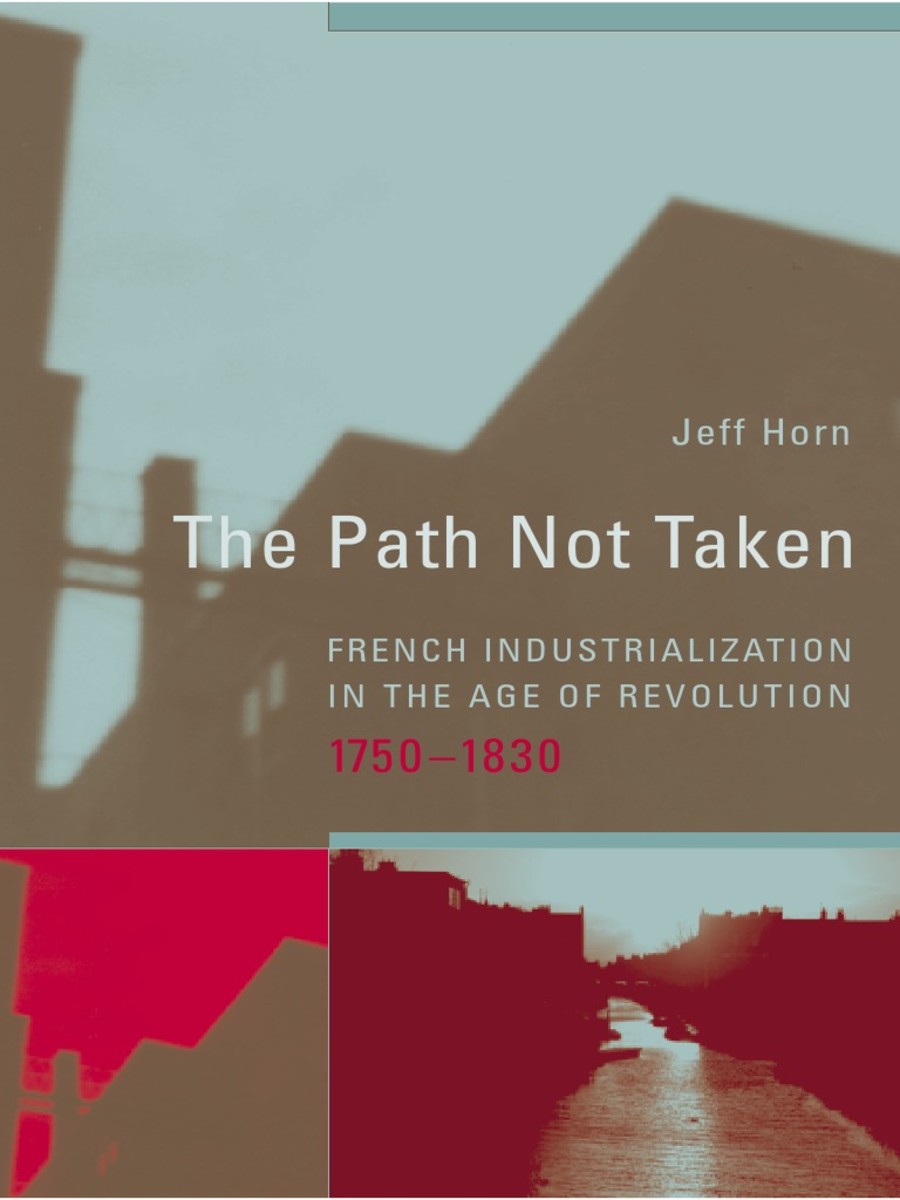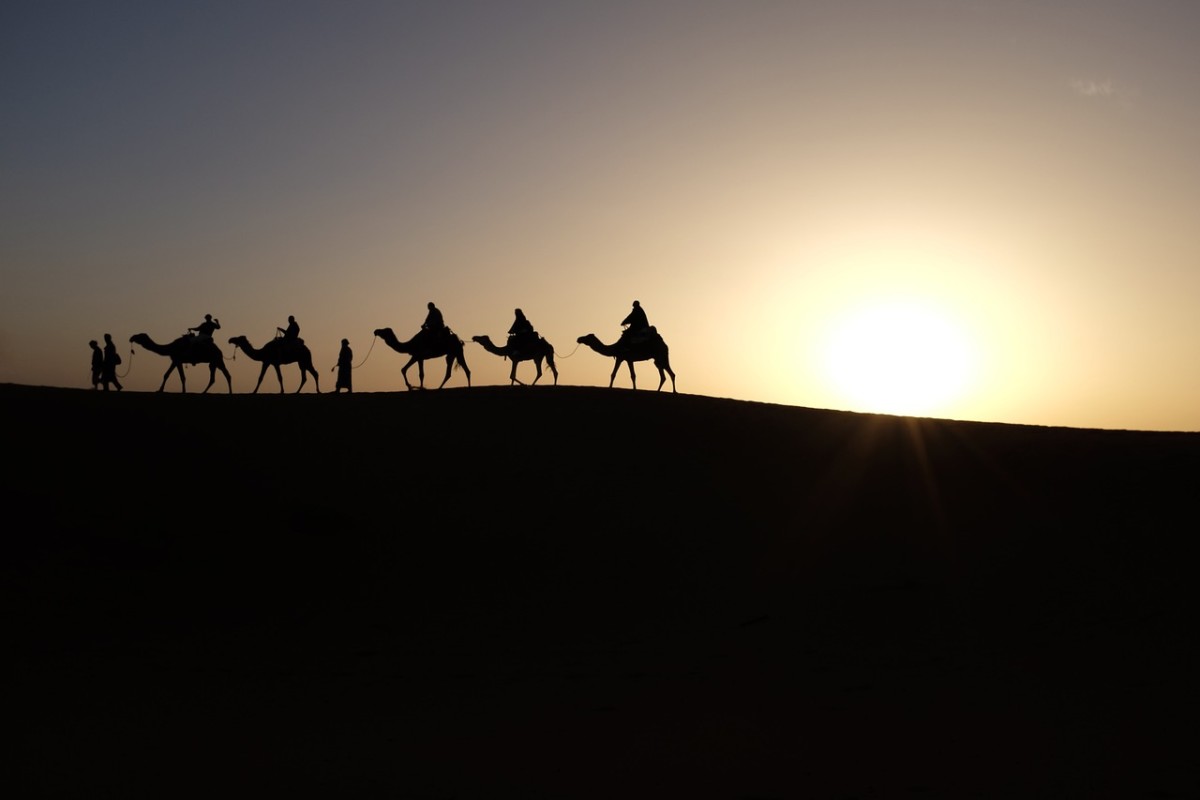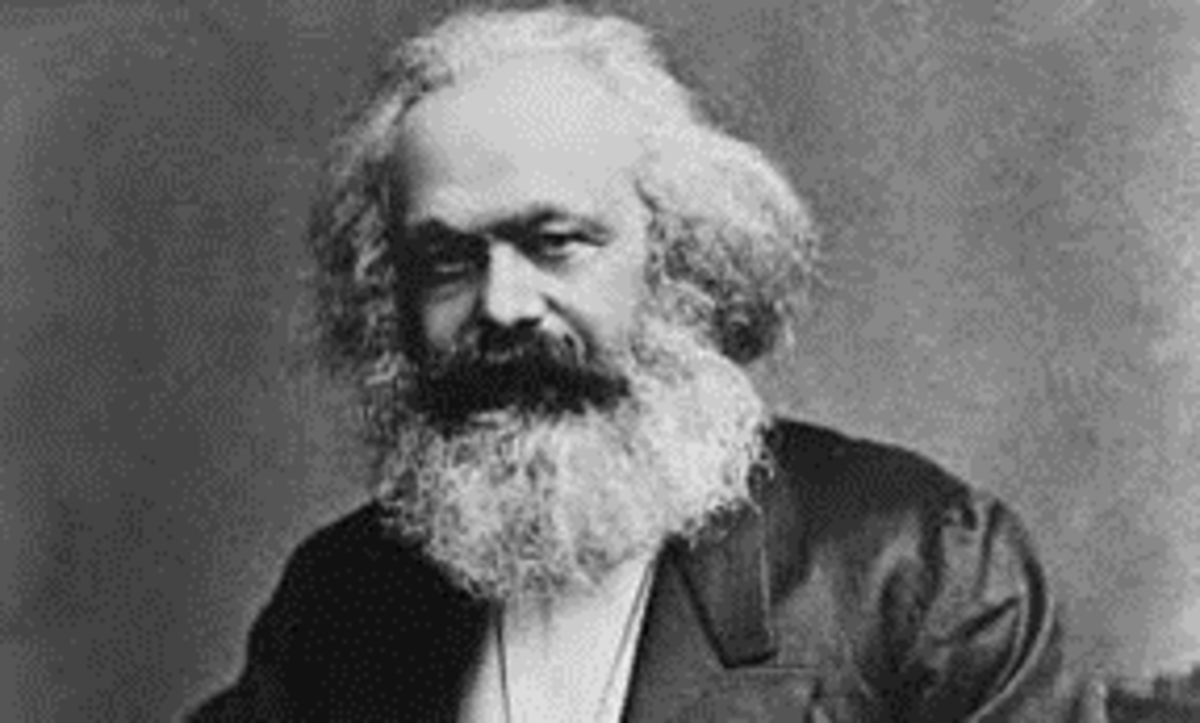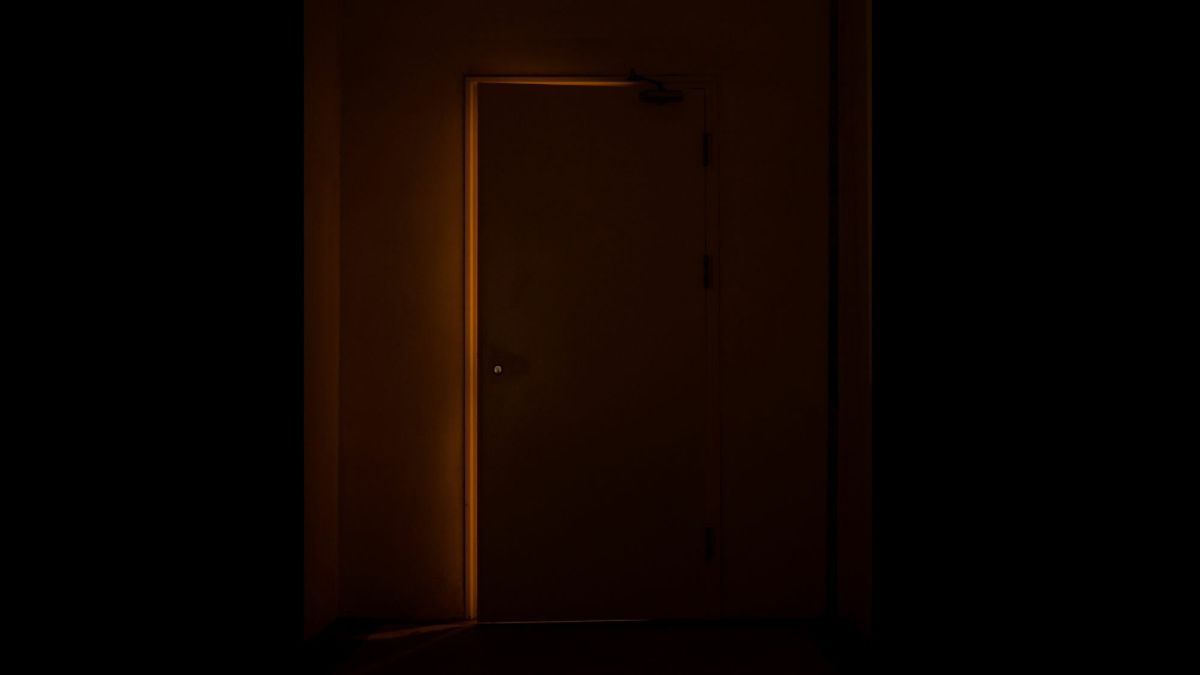"We" and "They"?
Some of the discussion on the country's crisis stems from the use of the term "we". They use this to indicate in an adjective that they speak in the name of the Lebanese in general. They say we are Lebanese. They are trying to impose their approach on the debate, and this is a real mistake. There are classes that have their position and have their share of the crisis. There are "us" and there are "they". Neither the Lebanese identity is coherent, nor the sectarian identity is coherent. These identities were created with the aim of eliminating true identity, i.e. class identity. It is a relationship of production, consumption and exclusivity of wealth. Unambiguously, there are two slices, one that produces and consumes, the other that accounts for the product and consumes humans and stone.
Our economy is like a big water reservoir. If we take more water from the tank than we put in it, we will reach a moment when nothing will return. This is our condition. We are withdrawing from the tank enough to service the debt and import, and what remains of our production base is in a state of contraction, as we do not make any savings. The inflows of dollars from outside stopped what brought us to the moment when we are, where it was said that the crisis is three-dimensional:
- the balance of payments crisis.
- The state's deficit crisis as a result of declining returns.
- The banking sector crisis, where assets decreased, bad debts accumulated, and pressure on withdrawals increased to a degree that exceeded the stress test, according to Basel III.
In practice, all of the above are phenomena of a social crisis. And "we" is a characteristic that has left behind the class that still possesses wealth by monetizing resources, including human resources.
Thirty years ago, and "we" worked in the context of borrowing with high benefits, which leads to an increase in the cost of debt servicing, then we return to borrowing until we serve the debt itself. Instead of going towards a fiscal and monetary policy based on reducing interest, and instead of adopting financial policies coupled with progressive taxes on income and assets, and instead of pushing people to invest in agriculture, industry, and infrastructure, everyone was driven to borrow in order to create bubbles, and stabilize the exchange rate per pound Service for the enriched class. The lira here has not been proven to support the loaf of bread. This is an assignment, and it is not requested from such a ruling class.
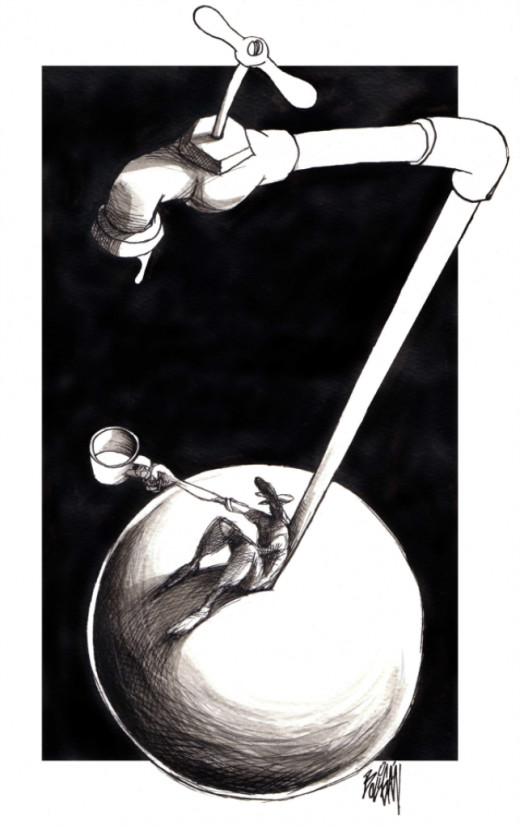
However, the state of the policy adopted by our country makes the country's capital serve the debt and its benefits. Rather than pushing the private sector to assume its responsibilities in development projects, the authorities in our country resort to the high interest policy that they set in order to bring dollars to serve the debt, or to prevent money from escaping from inside to outside. What leads practically to trapping money in this session, and therefore there is no one left to invest in the productive real economy. Rather, those with money devote themselves to investing in a speculative economy and long-term savings. This simply means more deflation in monetary and fiscal policies, something that has been in place for at least thirty years.
Policy shrinkage, in turn, leads to shrinking aggregate output and disrupting the distribution of income in their favor. Because the cake of the economy is shared by the owner of the capital with profits and benefits on the one hand, and workers with wages on the other. These policies demonstrated a greater imbalance in the capital interest. "They" used to divide rent from the loaf of labor, because they devoted rent based on productivity. As a reminder, all profits in the capitalist stage are rents. For example, when a new technology is invented, profit / rent is gained. By extracting oil, profit / rent is also gained. But Lebanon is in this capitalist phase, neither has it invented new technology nor extracted oil. Despite this, growth only occurred. So what did he sell?
In practice, Lebanon has liquidated its resources, sold its environment and its youth, seized minds with the ideology of "we" and "them" and wasted the livelihood associated with the reproduction of society, the real society. And thus the real "we" reproduced. It is best to live in a successful social environment. But the fact that the share of wages was distributed again in a different way. The share of wages has shrunk, and we have a two-part system of wages: the category of state employees with relatively high wages with health and pension guarantees, compared to a category of low wages without guarantees, and a third migrant category.
But these wages leave the country. It is consumed by import and supports imaginary debts, most of which are smuggled abroad. And these wages are invested in generations that few benefit from the country, because deflation and measures of job creation fall under their control "they". The job creation policy was never related to profitability because mechanization reduces live work. Job opportunities come from the power of political action, and its foundation is a social measure. Thus, politics are class. Financial and monetary policies are nothing but profit-taking tools, especially when they are under their authority. But the disposal of the assets of the economic tank afflicts the real "we" of the people. And it affects us with less electricity, more diseases and poverty. That is, it afflicts us with the basis of our existence and the reproduction of our existence. The real "we" are not those wrapped in national or sectarian identity. This "we" is fake. As for the real "we", they are the masses who suffer from poverty and diseases resulting from their "distribution" policies.
Thirty years ago, "we" have been working in the context of borrowing with high benefits in order to create bubbles and stabilize the exchange rate per pound to serve the wealthy class.
The delusional identity was the curtain behind the existential crisis. The crisis is no longer the crisis of this or that identity. It has become a health crisis with crafts and a crisis that shortens the life of a person. And what the "them" earned from the income income was organically linked with what diminished our life "we". Where ages waste price and profitability. And not only at the level of Lebanon, but also at the level of the entire universe. Therefore, our "we" war is a war of existence against them, "they." But the relationship of profitability to the abbreviation of man puts us in front of something more complicated. It is wars and fighting. They are the two industries that reduce human beings. Therefore, it is the most profitable industry. In the absence of organizational work, he realizes the danger of this slider. Without an ideology that sets out to fight imperialism, that is, to fight war-making that is more profitable, self-consumption will be a walk in front of what may come. Then the ruling class, i.e. “they”, will turn from a monetary rentier bourgeois class into a bourgeois monetary war. It will create jobs in a military proletariat with superstitious identities that consume themselves as part of the mass murder industry process. In this sense, it can be understood that oil was not alone the goal of the imperialist powers in the world, because oil profits are dwarfed by the profits of wars.
Returning to those who insist on saying that "we are suffering from a crisis", it is useful to clarify that we are, of course, "we", that is, the masses who suffer from the crisis. But it is a crisis of awareness, that is, we do not realize the duration, depth and course of the crisis. We do not realize that the consumption of humans and the environment in war is greater than the consumption of these indebtedness and more profitable. Worse yet, we do not realize "we existential". If Sisyphus was unaware of the injustice of the deities, he would not suffer (the Greek legend says that he was so cunning that he deceived the god of death, and he was not required to be punished by the great deity, Zeus, so he obliged him to carry a rock from the bottom of the mountain to the top, and if he reached the summit he rolled to the valley, then he returned to He raised it to the top, and remains so forever, so he became the symbol of eternal torment). And if the masses do not realize their injustice "they", they will not suffer as well. They are still "able" to pay half of the working class's salaries, so how do they get away with the other half of the working class. And these salaries are just another investment in the rentier war industry.
Also back to the issue of indebtedness and solutions. Religion today is an internal debt, not an external one. External debt forces the debtor to process it with understandings with the World Bank and with the International Monetary Fund, through austerity programs that make it possible to pay a large portion of this debt in a way that more and more appeals to the lives of the masses. As for the internal debt, which is the largest, it can be dealt with by us. That is, to monitor for our future productive capabilities, on easier terms. Banks make mistakes when given debt to those who are unable to repay. She is responsible for her work. It should not be capitalized with taxes on the people and with the cover of the International Monetary Fund. Then why is the IMF invited to be a peg and a justification for saving bankruptcy banks due to its wrong policies.
There is talk about cutting “hair cut” and other proposals. These are suspicious terms that you want to blame the looted, stolen person by virtue of his adoption of an identity policy that adopts “we are superstitious”. Instead of “we existential.” Fortunately, environmental pollution and lost policies come across all denominations. Because the environment as well as the social environment is an integral whole.
A positive shift today first assumes credit restoration. The capitalist economy does not move without credit, and the banks have relapsed and virtually closed. And staying the same today means that nothing will move. And the treatment must be subject to a Lebanese view and interest and not according to an international recipe, because the world order, including the international financial institutions, will only be interested in rearranging the situation for the interests of the same class, i.e. for the interests of the "they", meaning the same banking and political class with international monetary relations . These people dream of Greece's experience of saying that we can get out of the crisis without concessions from them and without a change in policies. Note that neither Greece nor Portugal has emerged from the crisis. In Greece today, the outcome is still worth two-thirds of what it was before, despite Greece being dependent on its foreign policies for the benefit of Zionism.
The issue of debt is not addressed under pressure. None of us will be obligated to pay the debt now. We are facing a first task, which is to restore credit for production. And the banking sector is fully responsible. It is inconceivable that he would delay procuring the cash fund to arrange a recapitalization of about $ 25 billion. This amount of money is sufficient to rehabilitate all the country's infrastructure, including security, water and electricity, with the participation of China if we wanted to.
The problem with the banking sector is that it played an opposite role. It is supposed to create credit for production. But they got involved in the process of plunging the country into a crisis that may have led to a new war industry. This is because banks, as a social class, do not belong to us "we", but rather belong to the international monetary capital that expands wars. The 25 billion dollars is enough to drink mineral water from the tap. Solar electricity, as well as recreational trips to Cuba!
For More Read:
- A Contribution to Analyzing the Structure of the Ruling Class in Lebanon
Thinker Pino Arlacchi is trying to define a theoretical definition of the mafia system "where the mafia power is based on a state of chaotic rivalry to attain Jah. It represents an excellent tool for social advancement in a capitalist society, where - Lebanon's Elite
The concept of "political clientelism" is adopted to explain how the underdeveloped state functions and to explain its poor performance. Michael Johnson applied this approach in the case of Lebanon, considering that "islamisis is the central phenomen - Imperial Political Concepts
The United States has redoubled its efforts, since the 1980s, during the beginning of the neoliberal expansion during the era of Ronald Reagan, to contain the entire globe, to change the main political concepts considered and used by the global left - Why Washington Takes Hariri out of the Race?
- "The King of Kings" of Flesh and Blood
For years, Christian theologians have disagreed with them about providing an artistic depiction of Jesus. The early Christians thought that this was a violation of the second commandment: "Don't make you a sculpture..." (Exit 20:4-6)... Until St. Joh
This content is accurate and true to the best of the author’s knowledge and is not meant to substitute for formal and individualized advice from a qualified professional.
© 2020 Hafiz Muhammad Adnan


